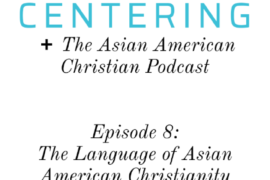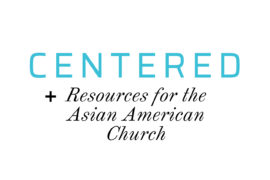
A few years ago, my good friend got married on her family farm in rural Kansas. In addition to home-cooked food and lots of country music, her reception featured a barnyard exhibition of wedding memorabilia passed on through generations. There, alongside yellowed photographs of beaming newlyweds, was the actual dress her great-grandmother wore on her own wedding day.
I remember marveling at the beautiful tailoring and thinking wistfully that in my own family, the oldest thing we owned was probably a kitchen appliance my parents got for opening a new bank account when they first arrived in the United States in the 1980s as broke graduate students. Their own parents, my grandparents, had all fled to Taiwan during the Communist takeover of China, starting from scratch as young adults. Beyond that, my access to family history – much less family artifacts – is pretty limited.
…in my own family, the oldest thing we owned was probably a kitchen appliance my parents got for opening a new bank account…
It reminded me of being in grade school and daydreaming of traveling the Oregon Trail or living in Colonial America. With my straight black hair and almond eyes, I knew it was a historical impossibility. But the only times Asian Americans were ever mentioned in history class were for the Transcontinental Railroad and Japanese internment camps – humiliating incidents I did not want to be associated with. Instead, I decided, I would work to become whatever I wanted to be in this land of opportunity.
The realities of adulthood have challenged me to rethink my youthful naivete. It turns out, I can be whatever I want to be – but there will always be supervisors who assume I’m just a hard worker and not a leader. I can be whatever I want to be – but there will always be colleagues who can’t differentiate between me and the other Asian American in the organization. I can be whatever I want to be – as long as I’m demure and keep my opinions to myself. Realizing that the rest of America puts all Asian faces in the same box, seeing them as perpetual foreigners, has forced me to recognize that I do indeed belong to a people with a history – the Asian American people.
…our experiences today are all tied together with those who came before us, whether we like it or not.
South Indian American slaves, Chinese American railroad workers, interned Japanese Americans, Korean American adoptees, Cambodian American refugees, even the latest Asian American Hollywood stars – our experiences today are all tied together with those who came before us, whether we like it or not. Better to understand how the rest of America has treated us, so that we can understand our own place in this country – and, if possible, even encourage and advocate for each other.
It may seem strange to talk about “remembering” the history of people you’re not actually related to – yet, as Christians, this is something we probably do already, without consciously thinking about it.
Ephesians 2:12 says that as Gentile believers, we were formerly “excluded from citizenship in Israel and foreigners to the covenants of the promise.” Yet through the death and resurrection of Jesus Christ, who broke down the wall of hostility dividing Jews and Gentiles, we are “no longer foreigners and strangers, but fellow citizens with God’s people and also members of his household” (vv.19-20). Once excluded; now a citizen. Once a foreigner; now family. Sounds an awful lot like the Asian American experience!
Remembrance is a prominent theme in the Bible. Now that we have been adopted into the line of Abraham, we are to remember that we were once slaves in Egypt, and that God rescued us (Deut 24:18). We are to remember God’s commandments and teach them to our children (Deut 11:18-20). Every time we eat the bread and drink the cup at communion, we are to “do this in remembrance of Me (Jesus)” (see 1 Cor 11:23-26).
Why is remembrance so important to God? And how can that help us understand ourselves as part of the greater Asian American family?
Through remembrance we make a habit of regularly giving glory to God.
One possibility is that through remembrance we make a habit of regularly giving glory to God for his incredible lovingkindness, and reaffirm our own commitment to following him. Likewise, perhaps the practice of “remembering” Asian American history is another way of acknowledging the hand of God at work in places and times outside of the Bible.
While we may not have family heirlooms like those my friend is able to hold on to, Asian Americans share a common connection when we take time to celebrate those who have courageously fought for our rights – such as Fred Korematsu – and lament the discrimination that has so often resulted in tragedy for our people – as in the case of Vincent Chin. As we do so, we make space for God to speak to us in our remembering, to help us understand, and perhaps to invite some of us to discern the role he is calling us to play in the ongoing restoration of his kingdom.



Comments are closed.